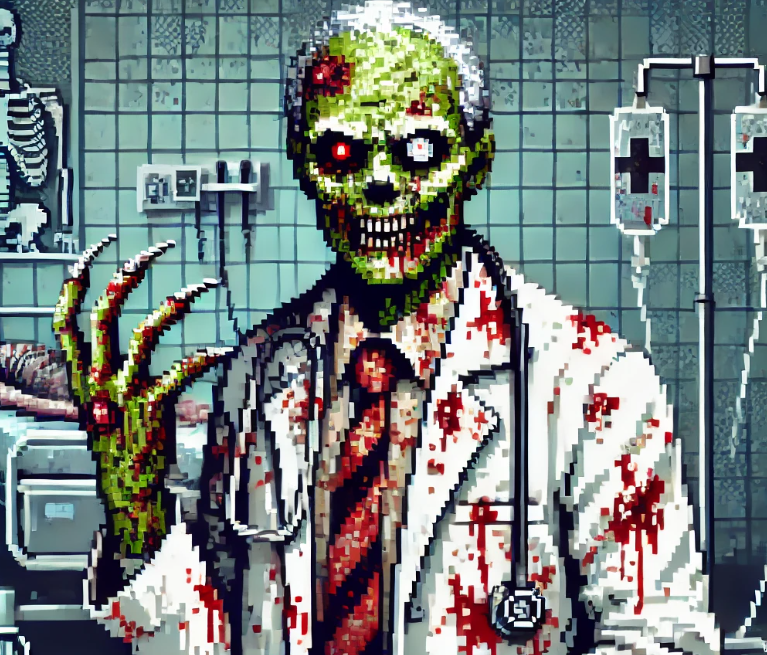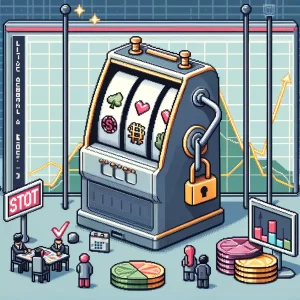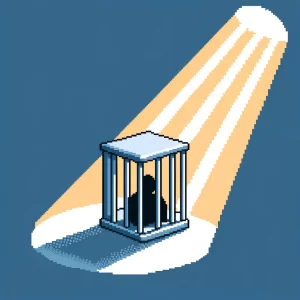
Why Do We Love Horror? The Psychology Behind the Fear
Why do people watch horror movies? What makes us willingly sit through scenes of terror, suspense, and bloodshed? Despite its often grisly content, horror remains one of the most popular genres in film. For over a century, horror has captivated audiences, with people lining up to be scared senseless by fictional monsters, supernatural forces, and gruesome realities. But the question remains: why do we seek out fear, and what does it say about us?
In this post, we’ll explore the psychology of horror films based on a comprehensive review of studies from fields such as psychology, psychotherapy, communication, and media studies. This research uncovers not just why we watch horror but also how it affects our emotions, thoughts, and behaviors.
The Appeal of Horror: More Than Just Thrills
When you think of horror movies, what comes to mind? Perhaps it’s the intense thrill of watching a ghost sneak up on an unsuspecting victim; the jump scares that make your heart race, or the relief you feel when the protagonist finally escapes the villain. Horror films tap into one of our most primal emotions—fear—but paradoxically, that fear can bring pleasure.
One of the key findings from the research is that people are drawn to horror for different reasons. For some, it’s about the excitement of the unknown and the adrenaline rush that comes with it. For others, it’s a way to confront their fears in a safe, controlled environment. The pleasure isn’t necessarily about enjoying the fear itself but the intense emotional experience that comes with it.
The Thrill of the Unknown
Horror films are designed to keep us on edge. They manipulate our fear of the unknown—whether that’s a lurking monster or an unseen threat—to build tension. This is where the excitement lies for many viewers. As the tension builds, so does our arousal, and when the threat is resolved, we experience relief. It’s this emotional rollercoaster that keeps us coming back for more.
In fact, one theory suggests that the more intense the fear, the greater the eventual relief and pleasure. So, when the movie finally ends with the hero overcoming the villain or the supernatural entity being banished, that moment of release can be incredibly satisfying. It’s a psychological payoff for enduring the fear.
Who Loves Horror the Most?
Surprisingly, not everyone enjoys horror in the same way. Personality traits play a significant role in how people respond to horror films. Studies show that sensation seekers—those who crave novel and intense experiences—tend to enjoy horror films more than others. These individuals may get a thrill from the heightened emotions that horror evokes, seeking out the adrenaline rush that comes with watching something scary.
On the flip side, empathy levels also influence how we react to horror. People who are highly empathetic tend to dislike horror films more, as they might feel more distress when they see characters in danger or pain. In contrast, those with lower empathy are less affected by the characters’ suffering and may enjoy the film’s suspense and fear more.
Interestingly, the research also highlights significant gender differences in horror preferences. Men and boys are more likely to seek out horror films and enjoy them, whereas women and girls tend to report more fear and discomfort. One possible explanation for this is that women generally have higher levels of disgust sensitivity and anxiety—traits that may make them more uncomfortable with horror’s graphic and violent content.
Childhood Fears and Horror Preferences
Our relationship with horror may begin in childhood. Studies suggest that children’s fears evolve as they grow older. While younger children are more afraid of symbolic stimuli—like ghosts or monsters—older children become more fearful of concrete, realistic threats, such as burglars or natural disasters. This shift in fear may explain why many people begin to enjoy horror films during adolescence, as their fears become more grounded in reality and they start to seek out experiences that challenge their bravery.
As children age, they also develop coping mechanisms to deal with fear. Cognitive coping strategies, such as understanding that monsters aren’t real, help children feel less afraid. As they grow older, they may even seek out horror as a way to prove their independence and resilience.
Why We Fear, and Why We Like It
Fear is an emotion rooted in survival. It triggers our fight-or-flight response, preparing our bodies to react to danger. But in the context of horror films, where the danger is fictional, we can experience this fear in a safe environment. It’s like riding a roller coaster—you feel the adrenaline, but deep down, you know you’re safe.
This is part of why horror is so appealing. It gives us a chance to explore our fears in a controlled way. We get to face monsters, killers, and supernatural forces, but we do so knowing that it’s all just a movie. In some ways, it’s a form of emotional practice. We can test our limits, see how much fear we can handle, and feel a sense of accomplishment when we make it through the film.
For some, horror films may even offer a cathartic release. By facing our fears on screen, we may find that we feel less afraid in real life. It’s a way to confront our anxieties in a controlled setting, which can help us feel more in control of our emotions.
The Future of Horror Research
While we’ve learned a lot about why people watch horror films, there’s still much more to explore. One area that’s ripe for future research is the role of disgust in horror enjoyment. Disgust sensitivity seems to play a key role in how people respond to horror, with those who are more easily disgusted being less likely to enjoy the genre. Understanding this further could help us unlock new insights into why some people love horror while others avoid it.
There’s also the question of how culture shapes our horror preferences. Different cultures have different fears, and these fears are often reflected in the horror films they produce. Exploring these cultural differences could provide a deeper understanding of how horror functions as a universal yet deeply personal genre.
Join the Conversation
What about you? Do you love or hate horror films? What do you think draws people to watch scary movies, even when they know they’ll be frightened? Share your thoughts in the comments or on social media using #HorrorPsychology!
Empower Your Network – Subscribe and Share!
Unlock key insights with ‘This Week in Public Health.’ Subscribe for free and share to drive change as part of a dedicated community. If you liked this blog, please share it! Your referrals help This Week in Public Health reach new readers.



